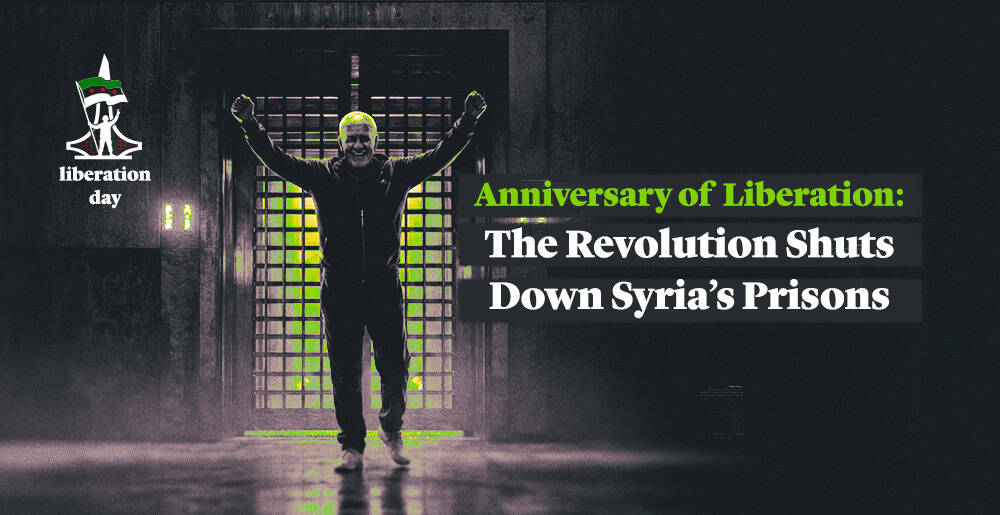King Abdullah II's Ambiguous Stance on Gaza During Trump Meeting

Reactions to the meeting between the King of Jordan and the U.S. President were varied.
A great deal of controversy surrounded the meeting between King Abdullah II of Jordan and U.S. President Donald Trump at the White House, particularly regarding Trump’s plan to relocate Gaza’s residents, insisting they be resettled in Jordan, Egypt, and other unspecified countries.
What sparked the controversy were the Jordanian king’s ambiguous responses when Trump, in his presence, pledged to forcibly relocate Gaza’s population to Jordan and Egypt.
Some even claimed the king’s statements had been fabricated, despite him speaking publicly on camera with his words clearly captured.
Vague Statements
King Abdullah II appeared visibly uncomfortable during his meeting with Donald Trump, with body language analysts noting signs of unease, suggesting he found himself in an awkward position, according to the BBC.
Following the February 11, 2025, meeting with the Jordanian monarch, Trump addressed reporters at the White House, elaborating on the details of his plan.
When asked about Jordan’s previous rejection of the proposal, Trump acknowledged having discussed the plan briefly with King Abdullah II, before turning to the monarch and prompting him to comment on the issue.
The king responded without directly supporting or opposing Trump, saying, “There is a plan from Egypt and Arab countries, and we were invited to discuss it with Mohammed bin Salman (the Saudi crown prince). The main point is how we make this (proposal) work in a way that benefits everyone."
It was expected that King Abdullah II would caution Trump that such a move could provoke a surge of extremism and instability in the region, undermine normalization with “Israel,” and threaten its very existence.
"One of the things that we can do right away is take 2,000 children, cancer children who are in a very ill state. That is possible," King Abdullah II told Trump.
Trump praised the initiative, calling it a “really beautiful gesture,” adding that he had not been aware of it before King Abdullah II’s arrival at the White House.
Minutes after his meeting with Donald Trump at the White House, King Abdullah II shared several tweets on his official account on X detailing their conversation.
“I reaffirmed Jordan’s steadfast position against the displacement of Palestinians in Gaza and the West Bank, which remains the unified Arab stance. The priority for all should be the reconstruction of Gaza without displacing its people and addressing the dire humanitarian situation in the Strip.”
“Jordan’s interests and stability, and the protection of Jordanians, are paramount to me above all else.”
“The importance of working to de-escalate tensions in the West Bank to prevent the situation there from worsening, which would have negative consequences for the entire region,” King Abdullah II noted.
Meanwhile, Jordanian Foreign Minister Ayman Safadi stated in an interview with the Kingdom TV channel on February 11 that “there is an Egyptian-Arab plan to rebuild Gaza without displacing its inhabitants.”
However, following the meeting, Trump told reporters that “there will be areas of land in Jordan and Egypt where Palestinians could live.”

Behind the Scenes
Regarding the details of Trump and King Abdullah II’s meeting and the King’s stance on the displacement of Gaza’s residents, Jordanian journalist Hosam Gharaibeh revealed that “Jordan did its best to avoid having journalists present during the meeting, but the U.S. side insisted on it.”
In an interview on Jordan’s “Husna” radio on February 12, Ghoraiba explained that Jordanian officials had opposed the idea of journalists attending, particularly due to the unpredictability of President Trump’s behavior during such meetings.
He continued, expressing concerns in Jordan about the possibility of Trump insulting or humiliating the king, similar to previous encounters with Saudi Crown Prince Mohammed bin Salman and the Egyptian head of the regime Abdel Fattah el-Sisi.
“The king and the crown prince were angry during the meeting,” describing the atmosphere as “similar to entering a bullring with a raging bull, where you don’t know what to do—provoking it is unwise, and the only option is to be cautious,” Gharaibeh added.
When asked about King Abdullah II’s failure to openly reject Trump’s plan to displace Gaza’s residents to Jordan and Egypt, Gharaibeh explained, “Confronting America at this time would be disastrous, but at the same time, I would refuse to implement what they ask of me. It requires a calm diplomatic approach, backed by Arab and European support.”
“Part of the king’s intelligence was to tell Trump that there would be an Arab meeting to discuss these matters,” Gharaibeh continued.
“The king endured the discomfort of this visit,” Gharaibeh noted, emphasizing that he had taken a leading role in meeting Trump, a step no other Arab leader had dared to initiate.

Regarding King Abdullah II's offer to host 2,000 sick Palestinian children from Gaza, journalist Gharaibeh emphasized that this initiative does not equate to "displacement."
“You must offer something to the land grabber who seeks to take your land. Thus, the king proposed the initiative to host these 2,000 Palestinian children," Gharaibeh added.
In contrast, Palestinian activist Adham Abu Selmiya wrote on X “The King of Jordan appeared weak and disoriented in front of Trump, his rapid eye movements clearly displaying a sense of confusion and vulnerability. By going to America, he weakened the broader Arab stance.”
"King Abdullah II explicitly agreed with Trump’s ethnic cleansing plan, as he remained silent when Trump suggested carving out a piece of Jordan’s land for Gaza’s people," he noted.
Abu Selmiya further criticized the king's actions, pointing out that the monarch revealed part of the plan by saying that Trump was pleased with his decision to host the 2,000 sick children and their families.
Additionally, the king’s statement about waiting for other countries to discuss the plan without explicitly rejecting it raised concerns.
“This scene is shameful and disgraceful. It’s shameful to show the public that you are complicit in ethnic cleansing with such a feeble position, and by accepting the blackmail of sick children from Gaza. It is utterly disgraceful not to say no to the displacement of Gaza and its people."
“We warned of the consequences of going to America before consolidating a unified Arab stance, but the King of Jordan preempted everyone, offering his servitude as a gesture of loyalty to Trump,” Abu Selmiya concluded.
Distortion and Misrepresentation
Some defended King Abdullah II’s comments during his meeting with Trump, going as far as claiming that the statements, which were broadcast with sound and video, were fabricated and distorted.
This perspective was shared by Nagy al-Shehabi, head of the Egyptian "Democratic Generation Party," in a statement on February 12.
In a statement published by Youm7 newspaper, al-Shehabi argued that "King Abdullah II’s remarks were distorted and taken out of context to fragment the unified Arab stance, which consistently rejects Trump’s plan to seize Gaza’s land and annex it to the U.S."
"The plan to distort the king’s remarks began at the White House, where the agreement with Jordan for a private meeting was breached by a surprise invitation for journalists to attend, a move designed to embarrass the Jordanian monarch."
According to al-Shehabi, "King Abdullah II did not back down from Jordan’s public position rejecting displacement, but rather used diplomatic skill to avoid Trump’s trap. He wisely said, 'Let’s wait for the joint Egyptian-Arab plan, and there will be a meeting with the Saudi Crown Prince and other Arab nations to discuss it.'"
The Egyptian politician believed that the king’s stance "was not an escape, but a clear affirmation to Trump that he could not make a deal with each Arab state individually, as the Arab position on the proposed plan remains unified."
Al-Shehabi also argued that the king’s offer to host 2,000 children from Gaza for medical treatment and his statement, "I will only do what is in the best interest of my country, Jordan," was “a clever maneuver to avoid confrontation with Trump and his reckless ideas.”
White House spokesperson Karoline Leavitt stated that during his meeting with Trump, King Abdullah II expressed a "strong preference" for Palestinians to remain in their land, while the U.S. president praised the Jordanian monarch, describing him as "one of the true great leaders in the world."
Speaking at a press conference on February 12, Leavitt noted that King Abdullah II reiterated his preference for Palestinians to stay in their land, suggesting that additional land be designated for new developmental projects that would create unprecedented levels of employment.
According to Al-Estiklal, "The president feels there are more comprehensive solutions, including the possibility of relocating Palestinians to safer locations," Leavitt added "Our Arab partners are working on preparing a peace plan to present to the president."












